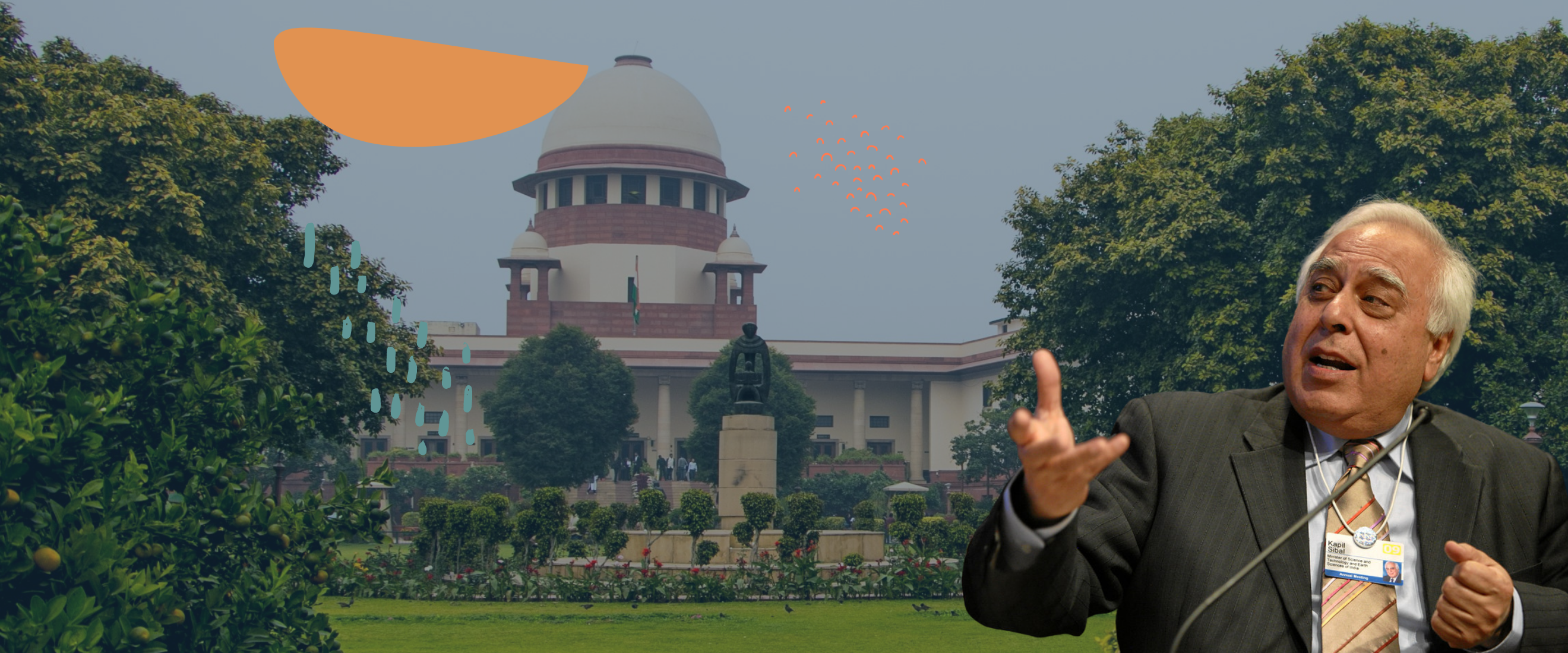Analysis
Interview with Kapil Sibal (Pt.1) – Triple Talaq
Senior Advocate Kapil Sibal was the arguing counsel in two landmark judgments in 2017 – Triple Talaq and Privacy

Senior Advocate Kapil Sibal was the arguing counsel in two landmark judgments in 2017 – the Triple Talaq (Shayara Bano v UOI) and the Privacy Case (Puttaswamy v UOI). In the Triple Talaq case, he represented the All India Muslim Personal Law Board (AIMPLB), which took the stand that triple talaq practice was valid and constitutional.
1) You were the arguing counsel in both Triple Talaq and Privacy Judgments? What is your first view on the outcome of both legal challenges?
Mr. Sibal – I am delighted by both the outcomes. As far as the grant of triple talaq is concerned – where a husband says talaq thrice and divorce takes place – that’s a practice which according to data collected so far is a dying practice. And I think the Muslim community itself recognises it as sinful. I don’t think that such a practice is one prevalent in the Muslim community in large numbers or is regarded as something that should be given legitimacy by large sections of the Muslim community. The more important issue in the judgment is the majority of 3:2, by which personal law will not be subject to scrutiny under Part III of the Constitution. Justices Khehar, Kurian Joseph and Nazeer formed the majority. The attempt of this government, was to keep the pot boiling, continue to raise issues regarding Muslim Personal Law, continue to divide societies and take forward their majoritarian agenda by continuously raising these issues through the court in 2017 and ’18. I think that’s been put a stop to. And that from our purpose is the most salutatory outcome of the judgement.
2) Do you think that in this case, strong public opinion against the practice affected the legal outcome of the case.
Mr. Sibal – That’s always the case. Strong public opinion, public outcry, the fact that Muslim women approached the court; these are all relevant factors in judicial process. Also, the intrinsic nature of divorcing somebody in instantaneous fashion like this is something that’s certainly anachronistic to the 21st century.
3) Is there a need for clarity on the operative part of the judgment?
Mr. Sibal – The operative part emerges from the judgment itself. Justice Kurian says that he agrees with the Chief Justice that the Muslim Personal Law (Shariat) Application Law, 1937 is not legislation. So it can’t be law in force under Article 13 and if it is not law in force, then it can’t be tested on the touchstone of Part III.
I agree with the conclusion of J. Nariman and J. Lalit to the effect that this is not a practice that can be considered as legal, for different reasons. The reason being that it is not sanctioned by the Quran, not because it is law and subject to Part III. That is why, he says what is sinful can’t be lawful. It’s on that logic that J. Kurian strikes it down.
4) Does Justice Joseph take the line of BMMA, which wanted the declaration of the practice to be recognised as unislamic without going into the constitutionality?
Mr. Sibal – Yes, he took the line that triple talaq is not recognised by the Quran, so it can’t be legally recognised. Whereas the Chief Justice says that we can’t look into triple talaq because it’s not for us to decide, as different hadiths say different things. So, the approach was different for judges.
5) Do you think that the judiciary along with the State should show more sensitivity in dealing with religious or cultural practices of Minorities?.
Mr. Sibal – Customary Practices of all communities should be respected and protected. Customary practices of Hindus like Maitri Marriage – the contract marriages in Gujarat – are all recognised. I think society has to move together if you want to address this issue without the colour of communalism. In the 21st century, society must also reform itself with times, be it the Hindu, the Christians , the Parsis. If you want to reform the community, then you have to do it holistically. The State cannot seem to be playing a partisan role. For instance, is the present government prepared to come to court and say that Hindu daughters can’t be deprived of their share in the self-acquired property of the individual. In Islam, the daughters do have a share in such property. Is it ready to say that Hindu undivided property must go, or that all customary marriage practices – in the North East, Himachal Pradesh, Uttarakhand, Kerala must go? So, by concentrating only on one community, the State sent a wrong message. Not that reform should not happen, but the focus should not be on one community only.
